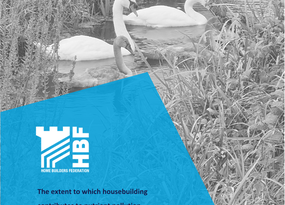The Planning Department at HBF works to influence national and local planning policy on behalf of all HBF members.
The team have four objectives:
• To make more land available for development (linked to ambitious housing requirements).
• To shorten planning application timescales.
• To push for a clear, consistent and justifiable regulatory regime.
• To promote a favourable perception of housebuilding and housebuilders.
Resources
Key issues

Nutrient neutrality
We estimate more than 160,000 new build homes have since been blocked by the disproportionate moratorium on development, which spans more than a quarter of local authority areas, from Cornwall to the Tees Valley.

Biodiversity Net Gain
Government's Biodiversity Net Gain (BNG) mandate came into force for major sites on Monday 12 February and small sites on Tuesday 2 April 2024, requiring a minimum of 10% BNG on new developments in England.
Planning groups

Get involved in our planning groups and contribute towards progression in home building
Find out more

















